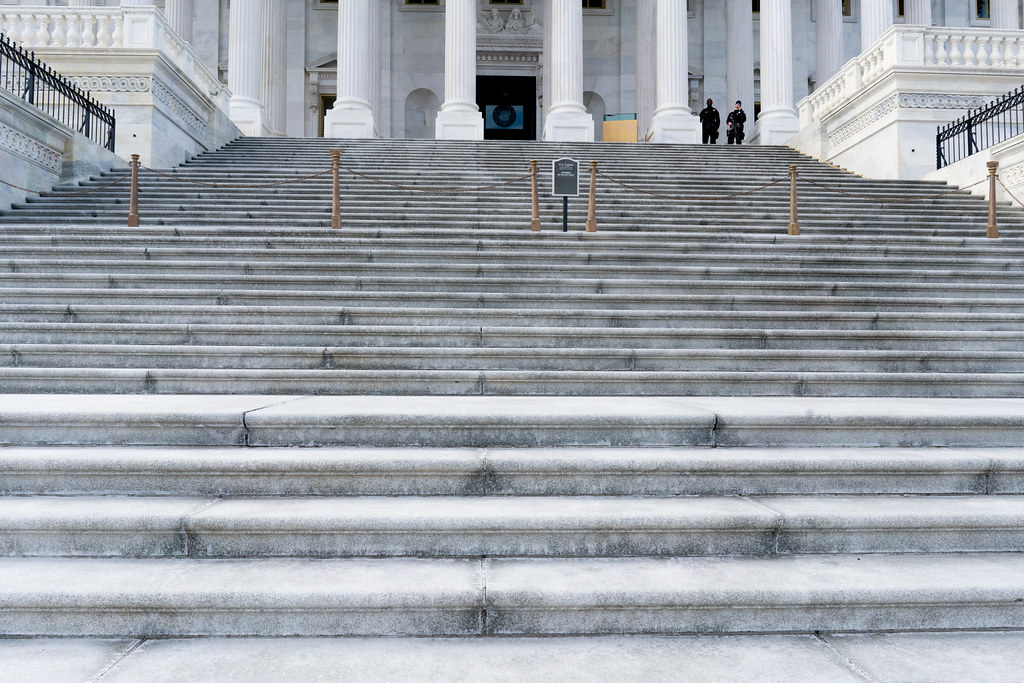Reading the Senate Rules of Impeachment Litigation: A Response to Hurd and Wittes
The Senate rules do not require a full trial, nor do they equate “removal” with “disqualification.”

Published by The Lawfare Institute
in Cooperation With

Describing what a Senate impeachment trial of President Trump may look like, Hilary Hurd and Benjamin Wittes quote Rule 23 of the “Rules of Procedure and Practice in the Senate When Sitting on Impeachment Trials” for the proposition that if the president
is convicted upon any article by a two-thirds vote of the members present, the “Senate shall proceed to the consideration of such other matters as may be determined to be appropriate,” in other words, his removal and disqualification from office.
In fact, the Senate rule does not hint at what matters might be determined appropriate, and it does not expressly mention either “removal” or “disqualification.”
Modern Senate practice is to hold a separate vote on disqualification but not for removal. The modern practice is that if a party is convicted by the necessary two-thirds vote, and if the party is still in office at the time the Senate enters a final judgment against him or her, on any single count, then that party is removed immediately by operation of law. Peter M. Shane writes that, “[a]s interpreted by the Senate, this provision requires removal from office as an automatic consequence of conviction, but disqualification from office requires a separate vote.” That said, historically, practice has been uneven. In 1862, in Judge West H. Humphrey’s Senate trial, there were three separate votes—for conviction, removal and disqualification. Similarly, in 1804, in Judge John Pickering’s trial, there were separate votes for conviction and removal. As Michael Gerhardt has explained, in “earlier impeachment trials ... the Senate took separate votes on guilt and removal.”
Hurd and Wittes also write:
Ideally, the president would want to win on a motion to dismiss and jettison the whole trial entirely. So, first things first. Does there have to be a trial? It would be pretty hard to worm out of holding any trial at all. Art. I, § 3 cl. 6 gives the Senate sole power to try impeachments, suggesting though not specifically saying there is a duty to do so, while Rule 3 presumes that a trial will commence after the articles are presented.
Hurd and Wittes are equating a “trial” with a full trial on the merits, with all the bells and whistles, witnesses and all. I know of no firm judicial support for this interpretation, and they cite none. Traditionally, trials have distinct phases. Motion practice is part-and-parcel of trial practice, and preliminary motions are a distinct phase of trials. Furthermore, the modern motion to dismiss—like its predecessor, the English demurrer or the motion to strike—has an ancient pedigree. Customarily, if a defendant prevails on a preliminary motion, not only does that terminate the trial, but it may also be a final judgment on the merits. As for precedent, the Senate dismissed the impeachment of Senator William Blount in 1799 on jurisdictional grounds following extensive motion practice by attorneys for both sides.
What Hurd and Wittes characterize as “worm[ing] out of holding any trial” is a harsh condemnation for long-standard practice and a rejection of customary concerns about the conservation of judicial—and, here, congressional—resources. For example, one might imagine an impeachment trial in which the case should not proceed to the examination of witnesses—because even if the factual allegations put forward by the House managers were true, the defendant should prevail as a matter of law. Likewise, one could imagine an impeachment in which the case should not proceed to the examination of witnesses because “there is no genuine dispute as to any material fact and the movant is entitled to judgment as a matter of law.” In these and other similar types of impeachment trials, the examination of witnesses adds nothing substantive to the proceedings. Instead, such witness examinations could cause confusion among senators and the public with regard to why decisions were made by the presiding officer and the full Senate; may generate collateral and time-consuming civil and criminal judicial proceedings (including, for example, privilege and perjury proceedings); and would burden and delay the central impeachment proceedings in arriving at a final judgment.
In short, preliminary motion practice during a presidential impeachment trial allows such cases to be resolved at the threshold while conserving significant private and public resources. Even while an impeachment trial is ongoing, Congress, the president, and the chief justice of the United States (who, in the ordinary course of business, presides at a presidential impeachment) will continue to have other important public business to attend to.




